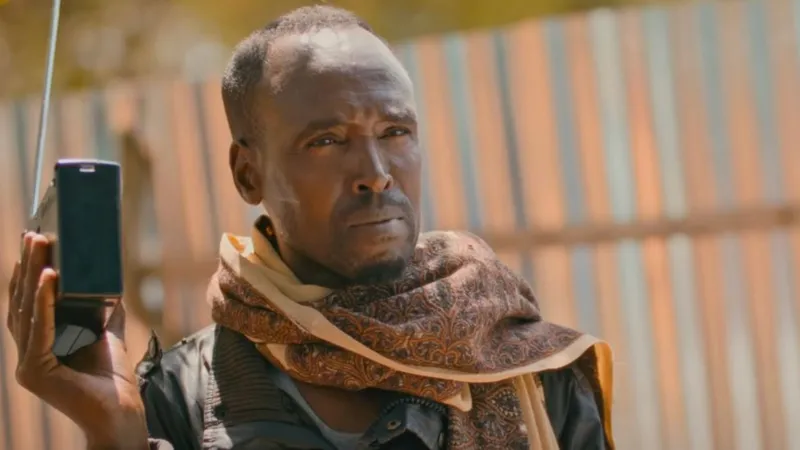Recent headlines vibrated through the world of cinema, as Somali actor Mohamed Abdullahi, widely known for his powerful performances and advocacy against violence, was shot dead in a chilling turn of events rooted in a personal feud. This tragic incident not only highlights the violent realities entwined within some Somali communities but also serves as a stark reminder of the unintended consequences that can arise even in the most artistic endeavors.
Abdullahi, 34, was gaining prominence for his role in a film that poignantly addressed the consequences of revenge killings, a prevalent issue in various communities, including his own. The film, titled “Blood Ties,” depicted the cycle of violence that often arises from familial disputes, showcasing how revenge can escalate into unnecessary bloodshed. Abdullahi’s performance resonated deeply with audiences, portraying a call for peace and understanding rather than retaliation. Ironically, his life came to a violent end due to a feud that had reportedly been simmering among family members.
Witnesses reported that the incident occurred in Mogadishu, where Abdullahi was attending a family gathering. Tensions flared between different factions within the family, stemming from disputes that had lain dormant for years. As emotions boiled over, gunfire erupted, and Abdullahi, known for his peaceful demeanor, tragically found himself caught in the crossfire. Despite efforts to rush him to the hospital, he succumbed to his wounds, leaving behind a community in shock.
The circumstances surrounding Abdullahi’s death underscore a significant societal issue in Somalia. Long-standing clan rivalries and animosities often result in tragic consequences, and the actor’s death is a stark reminder of how easily personal grievances can lead to violence. In his film, Abdullahi had hoped to shine a light on this very problem, urging society to break the cycle of vengeance and choose dialogue over violence. His death now raises uncomfortable questions about the effectiveness of art in conveying serious messages when the reality on the ground is so starkly different.
Communities across Somalia and the diaspora are mourning the loss of a man who not only entertained but also inspired hope and reflection. Abdullahi’s friends and collaborators expressed their devastation, emphasizing his dedication to using his platform for positive change. “He believed in the power of storytelling to heal,” said fellow actor Amina Abdi, “and it’s heart-wrenching that he lost his life for the very message he was trying to convey.”
Authorities have begun investigating the incident, but reactions to Abdullahi’s death have sparked broader discussions about the urgent need for conflict resolution and peace-building initiatives within Somali communities. Many are calling for a reevaluation of the justice system and preventative measures to stop the cycle of vengeance that has plagued families and clans for generations.
The irony of Mohamed Abdullahi’s life and death serves as a poignant and painful reminder that the messages we send through art must be met with change in reality. As discussions continue, his legacy as both an actor and a symbol of the need for peace will not be forgotten. His tragic loss serves as a rallying cry for communities to come together, renounce violence, and strive for a future where stories of revenge are replaced by narratives of reconciliation and unity.
In a world increasingly touched by violence, Abdullahi’s fight against the very forces that took his life will resonate, reminding us all of the delicate balance between art and life, and the transformative power that storytelling can possess if only we choose to listen.
Email Us on editorial@nnafrica.com













